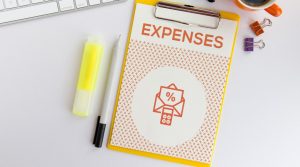Self-Employed individuals in the UK face a variety of expenses not typically faced by employees in traditional jobs, such as expenses related to buying and maintaining a business vehicle. While these costs can be high, they are also often deductible. In this article, we’ll explore the basics of self-employed expenses in the UK and help you figure out which expenses are deductible and which ones should be reserved for professional use.
What are Self-Employed Expenses?

Self-employed expenses are any expenses associated with running your own business. These can include things like office supplies, software, marketing materials, and other fees related to running your business.
There are a few key things to keep in mind when calculating self-employed expenses,
1. You’re responsible for all of the costs related to running your business, whether or not you earn income from it. This includes office taxes and insurance premiums to employee salaries and advertising costs.
2. You should also include any expenses you incur in order to run your business for sale profitably. This includes things like rent, equipment costs, and software licenses.
3. Keep track of these expenses so you can accurately calculate your gross profits and losses.
What are the benefits of Self-Employment?

There are many benefits to self-employment, including the following,
Independence: Being self-employed allows you to work for yourself and control your own schedule. This is a great way to be in control of your life and achieve your goals without having to worry about bosses or employees.
Flexibility: You can work as much or as little as you want, which gives you the freedom to choose the hours that best suit your needs.
Control Over Income: Self-employment may give you an income that’s higher than what you would earn working for someone else. This is because self-employed people are responsible for all their own expenses, including taxes and overhead costs.
Opportunity For Growth: With self-employment, there’s always room for improvement and growth. You can start out small and work your way up, or take on additional projects that interest you. There’s no limit to what you can achieve if you’re willing to put in the effort!
What are the costs involved with self-employed people in the UK?

There are a number of costs associated with being self-employed in the UK. These costs can vary depending on your particular situation, but they generally include taxes, benefits, and other expenses.
One of the main costs associated with self-employment is tax. As a self-employed person, you will have to pay income tax on all the money that you earn. This includes both your regular income and any bonus or commission that you receive. When it comes to managing the tax burden of being self-employed, it’s essential to understand what can you claim as self-employed in order to maximize deductions and minimize your overall tax liability.
You will also have to pay national insurance contributions, which are mandatory charges charged by the government to cover Social Security and pension obligations for employees.
Aside from taxes, there are also associated benefits that you may need to pay for health insurance, dental insurance, life insurance, and other similar items. In addition, many self-employed people also need to set up their own business accounts so that they can receive business-related perks like reduced business rates or free parking spaces.
Overall, it is important to keep track of all the costs involved with being self-employed in order to make sure that you’re not overspending or missing out on any important discounts or offers. There are a number of resources available online which can help you calculate your specific expenses and tax liabilities.
Tips on Cutting Expenses in Your Own Business

There are a number of ways that you can reduce expenses in your own business for sale. Here are some tips to get started,
1. Review your expenses and figure out where you can eliminate unnecessary costs.
2. Evaluate the effectiveness of your marketing campaigns and determine what kind of ads, content, or materials are most likely to generate results.
3. Review your customer base and identify who is the best target audience for your product or service.
4. Reduce the amount of time that you spend on administrative tasks by automating as many possible processes.
5. Look into alternative financing options, such as loans and grants, to help cover costs that would otherwise be difficult to finance.
Conclusion
All in all, take note that you can use this list to lower your expenses when it comes to self-employment taxes. Just make sure that you are adhering to these expenses carefully and sticking to them in a consistent way. With the right combination of planning and tracking, you will be able to reduce your expense for self-employed taxes significantly!









Leave feedback about this